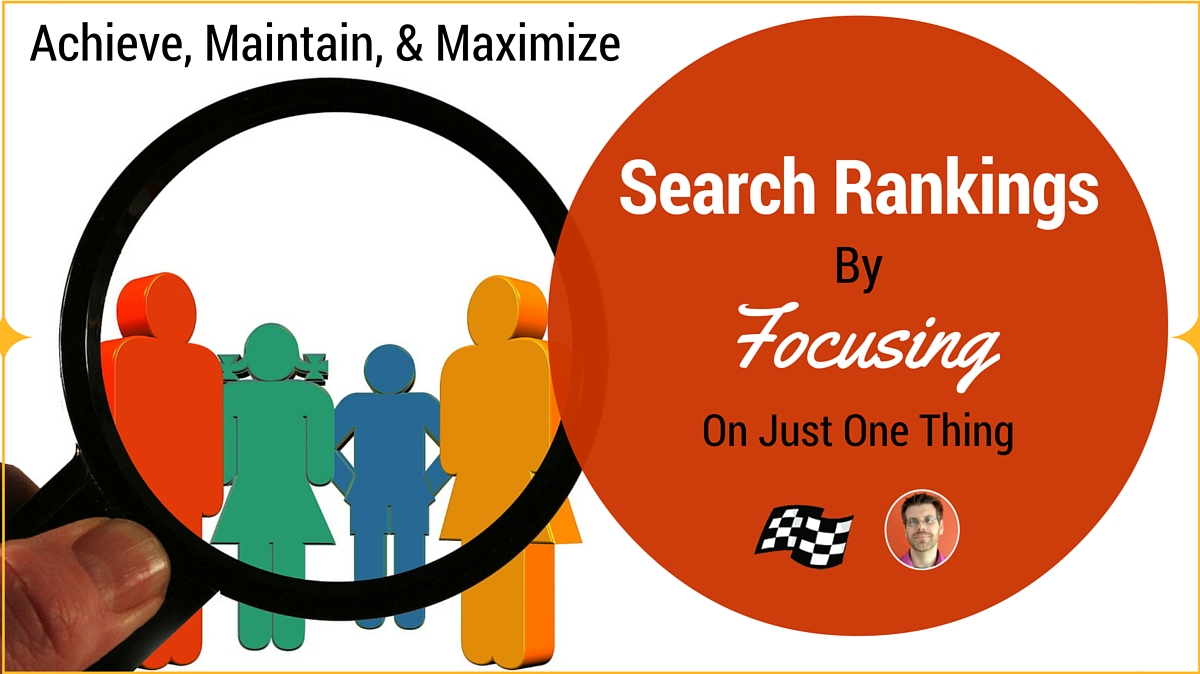
A big focus on the SEO side of digital marketing is on getting top search engine rankings. And all too often in the race to achieve first page placement, marketers start thinking more about what the search engines want than what the searchers want. That’s the problem with using search engine rankings as a metric.
But search engines are not our customers. And when we focus on getting ranked in the search engines, we often neglect the very reason we want to be there, which is to get actual people to click into the website.
The best thing you can do to achieve, maintain, and maximize the value of your search engine rankings is to focus on the searcher.
 “The best thing you can do to achieve, maintain, and maximize the value of your search engine rankings is to focus on the searcher.”
“The best thing you can do to achieve, maintain, and maximize the value of your search engine rankings is to focus on the searcher.”
Which really means that we have to consider the intent of every search. Optimizing a page for a particular phrase doesn’t automatically make it a valuable page, or one that the searcher is looking for. It’s just a page that you’re trying to get ranked.
Every time a query is typed into a search engine, the searcher has a specific need or intent. In the process of optimizing for keywords, you also need to optimize for relevance. And that means making sure that the content of the page gives the searchers exactly what they were looking for.
And if the overall purpose of the page doesn’t or can’t be made to fit the searcher’s intent, perhaps it’s not the best page to optimize for that phrase after all.
Checklist for optimizing rankings for searchers
- Research your keywords. See what content comes up for each particular phrase with an eye on the intent of the search.
- Optimize for intent. Make sure the content of any page is optimized not just to rank for a keyword but that it matches the intent of the searcher.
- Target related keyword groups. Each page should be optimized for a very tightly knit group of keywords that all have the same basic meaning and intent.
- Optimize your Title and Meta Description tags to encourage the visitor to click into your site. See what other site’s say and make yours better.
